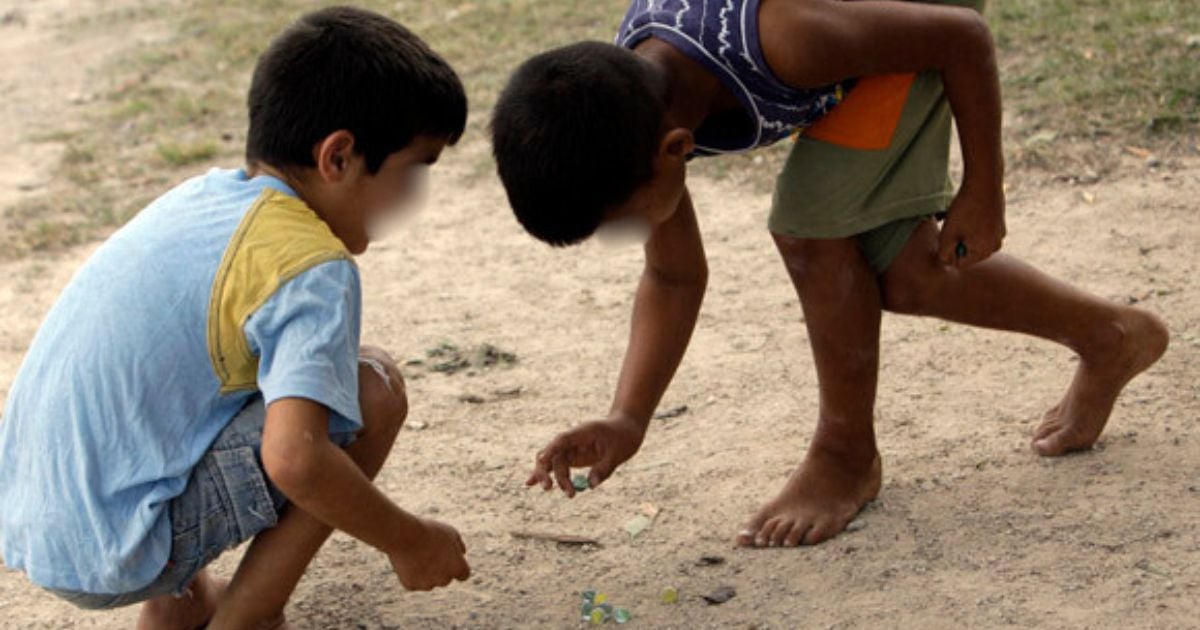
A concerning scene was captured this Wednesday in Santiago de Cuba, showing a group of children gambling for money while playing on the street.
Journalist Yosmany Mayeta shared on Facebook an alert from a mother who reported that the images were taken of children from the Álvaro Barriel and Manuel Ascunce schools, "playing for money instead of being in class at 9:00 a.m."
Mayeta reflected: “Many of those reading me at this hour will say, ‘this is normal, I did it too,’ or they will see themselves in these images.”
However, the communicator himself pointed out that it would be more appropriate for them to be "studying and learning a profession that prepares us for our lives," although it is also common to see cases of child labor today.
Finally, he stated, “If you are smart and don’t waste your time, you will learn a trade that will earn you much more money than playing in a corner.”
However, this is not the first time that images of children and young people using games as a way to earn money have circulated on social media.
In March of this year, it was reported in Santiago de Cuba that nighttime blackouts had become the perfect setting for a group of young people to play cards and engage in street gambling for money, an illegal practice that the regime has pursued for years.
Mayeta posted on Facebook that this is how some people are coping with the long and torturous hours without electricity, enduring the heat and being besieged by mosquitoes.
The late dictator Fidel Castro, after coming to power in January 1959, prohibited gambling by law, a measure that was reaffirmed in 2022 in the new Penal Code.
Article 281.1 states that “anyone who engages in activities as a banker, collector, tipster, or promoter of illegal games” will be “punished with imprisonment for one to three years or a fine of 300,000 units, or both.”
Similarly, the law states that if the crime "is committed by two or more individuals, or involving minors under 18 years of age," the penalty shall be "imprisonment for a period of three to eight years."
Article 281.1 stipulates that "anyone who engages in activities as a banker, collector, odds maker, or promoter of illegal games" will be "punished with imprisonment for one to three years or a fine of 300,000 units, or both."
Similarly, the law states that if the crime "is committed by two or more people, or by using individuals under 18 years of age," the penalty will be "imprisonment for a period of three to eight years."
However, the existence of this legal framework has not prevented "playing the bolita" from becoming very popular among Cubans, almost a tradition in many families.
Filed under: